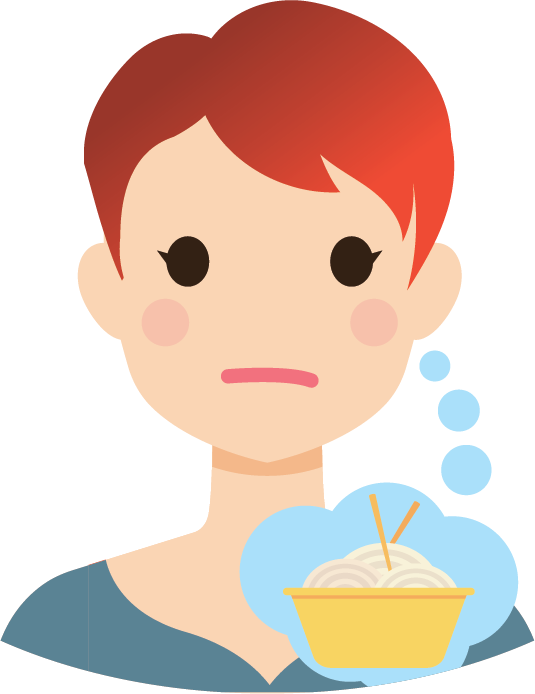Eating disorders are not the same as changing your diet or worrying about eating too much. They can take over your life, and be very serious if the right care and support isn't given.
Eating disorders are not just about food – they are about feelings, and can be a way of coping or feeling in control. The good news, though, is that recovery is possible and the sooner someone gets treatment, the more likely they are to manage their eating better.
People with eating disorders are often secretive about their eating and may feel guilty and ashamed. They may focus excessively on their weight and shape, leading them to make unhealthy choices about food, which can affect them in many ways. The main types of eating disorder are anorexia, bulimia and binge eating disorder. You can read more about these here.
What might help?
If you're worried that you have a problem with eating, there are certain things you can do to help yourself:
- Stick to regular meal times: make sure you have breakfast, lunch and dinner. Start with smaller portions until you get used to eating frequently
- Try to be honest about what you are or are not eating to yourself and other people
- If you lose more weight you are likely to feel more anxious and depressed. Try to be kind to your body; look after it and don’t punish it.
- Do not weigh yourself more than once a week
- Get your weight and height checked with a health professional, for example a school nurse, practice nurse or GP. They will be able to work out whether you are in your ‘healthy weight range’. You can ask your GP or school nurse about this
- Try not to spend time checking your body and looking at yourself in the mirror. Nobody is perfect
- Stay close to your family and friends. They can help you, and help you to avoid unhelpful websites that encourage you to lose weight and stay very thin.
Are you worried someone you know may have an eating disorder?
It’s hard to know what to look out for. Have a look at the list of common signs of an eating disorder from BEAT.
If you’re worried that someone you care about is showing signs of an eating disorder act quickly and speak to someone you trust. Don’t delay. Getting help quickly is really important.
Who to talk to
Eating disorders can be very serious, and anyone with an eating disorder must get professional medical advice.
In Dorset, either contact your GP or any health and social care professional, or you can refer yourself directly to the specialist eating disorder service whose contact details are below and they will advise you of what the best next steps will be so that you can get help.
Dorset Young People's Eating Disorders service
Telephone: 01202492415
Email: dhc.referrals.ypeds@nhs.net
Address: 71 Haven road, Canford Cliffs, Poole, Dorset Bh13 7LN

